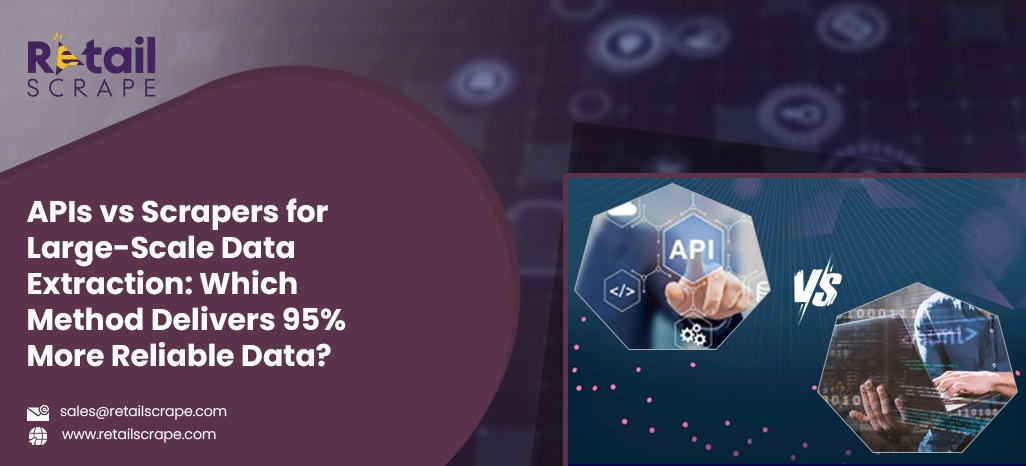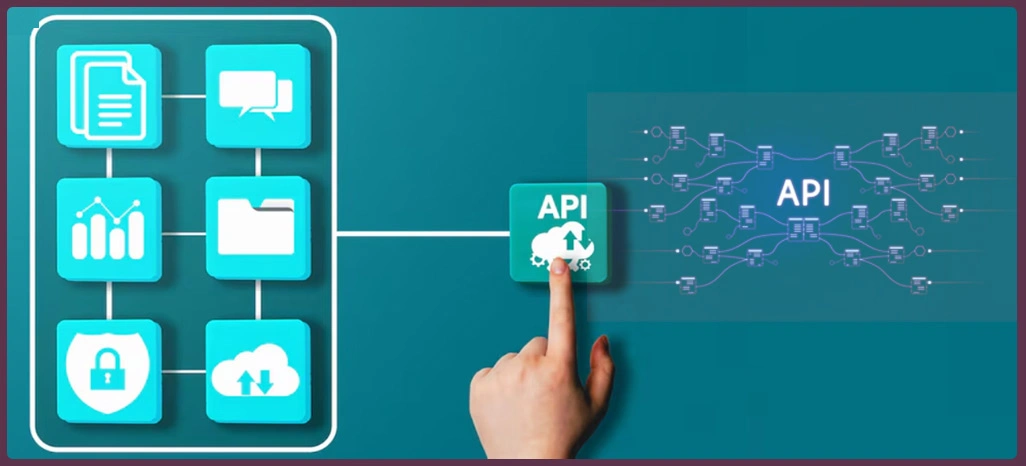APIs vs Scrapers for Large-Scale Data Extraction: Which Method Delivers 95% More Reliable Data?

Introduction
In today’s data-driven environment, businesses rely heavily on accurate and timely information to make strategic decisions. However, the sheer volume of available data makes Large-Scale Dataset Extraction a daunting task. Two primary approaches have emerged to tackle this challenge: APIs and scrapers. APIs offer structured access to specific datasets but often come with usage limitations, while web scraping provides more flexibility in retrieving data from multiple sources simultaneously.
Choosing between APIs vs Scrapers for Large-Scale Data Extraction is essential for optimizing workflow efficiency and ensuring the integrity of collected data. Many organizations struggle with API restrictions for data collection, which can slow down insights and hinder timely analysis. On the other hand, Automated Data Extraction Tools like advanced web crawlers can efficiently compile vast datasets from multiple platforms, offering more control over the extraction process.
Understanding the benefits and drawbacks of both approaches, including Accuracy of Scraped Data vs API Data, enables companies to make informed decisions. Evaluating these factors ensures that businesses can scale their data operations without compromising quality, speed, or cost-effectiveness.
Assessing the Reliability of Various Data Sources

Ensuring the accuracy of collected data is a crucial step for any data-driven initiative. Businesses often encounter inconsistencies in datasets, which can affect analytics and decision-making. While some platforms provide structured access, others require more flexible methods to gather comprehensive information. Data Accuracy APIs vs Scrapers highlights the differences in completeness, timeliness, and consistency across different data collection methods.
| Metric | Method A Accuracy (%) | Method B Accuracy (%) |
|---|---|---|
| Complete Records | 88 | 95 |
| Real-Time Updates | 80 | 93 |
| Consistency Across Sources | 85 | 92 |
Automated processes play a significant role in improving reliability. Using Large-Scale Dataset Extraction, organizations can capture data from multiple platforms without missing critical updates. By combining structured methods with intelligent monitoring, gaps caused by missing endpoints or partial datasets are minimized.
Advanced frameworks also ensure consistency in formatting, reducing manual validation needs. With thorough planning, businesses can mitigate errors, detect anomalies, and enhance overall dataset integrity. In many scenarios, flexible extraction methods outperform rigid endpoints, providing more comprehensive insights for analysis.
Overcoming Challenges in Data Collection Methods

Large datasets often require multiple strategies for effective gathering. While structured access simplifies collection, restrictions like limited requests and authentication requirements can impede large-scale operations. Web Scraping vs API techniques provide businesses with flexible methods to gather information from a variety of sources simultaneously.
| Limitation Type | Structured Method | Flexible Method |
|---|---|---|
| Request Frequency | Limited per hour/day | Dependent on crawler efficiency |
| Data Scope | Only available endpoints | Broad across multiple sources |
| Cost Implications | Pay-per-call in many cases | One-time setup costs |
Automated systems can significantly reduce manual intervention while enabling continuous monitoring of dynamic datasets. These tools allow organizations to track changes efficiently, gather large volumes of information, and ensure completeness. Using intelligent monitoring, organizations can detect inconsistencies, validate records, and supplement structured sources with additional data.
This hybrid strategy minimizes risks and increases reliability without sacrificing efficiency. By implementing Web Crawlers for Dataset Building, companies can ensure broader coverage and maintain consistent access to high-quality data. Regular updates, error checks, and optimized workflows improve operational efficiency, making large-scale extraction more reliable and manageable.
Improving Data Collection Workflows for Efficiency

Maximizing efficiency in data gathering requires a well-structured workflow that can adapt to changing sources. Combining multiple methods ensures that organizations can maintain continuous access and reliability. A Web Scraping API approach integrates structured endpoints with intelligent extraction techniques, improving speed and coverage.
| Efficiency Metric | Structured Only | Hybrid Approach |
|---|---|---|
| Data Coverage | Medium | High |
| Processing Speed | Moderate | Fast |
| Maintenance Complexity | Low | Medium |
Flexible workflows enable the combination of real-time structured data with supplementary data collected from external sources. Integrating automated validation processes ensures the accuracy and completeness of datasets. This approach reduces operational delays and enhances overall efficiency, allowing teams to focus on analysis and insights rather than manual collection.
Using API-Based Dataset Issues as a reference, organizations can address potential gaps proactively, designing solutions that supplement structured endpoints with additional extraction methods. This hybrid methodology ensures comprehensive datasets that are both timely and reliable.
How Retail Scrape Can Help You?
We empower businesses to handle complex requirements by providing solutions that combine structured APIs with smart scraping techniques. Our expertise ensures that APIs vs Scrapers for Large-Scale Data Extraction is implemented in a way that maximizes reliability and operational efficiency.
We offer the following services to streamline your data extraction process:
- Continuous monitoring of multiple data sources.
- Custom data pipelines tailored to your needs.
- Real-time updates for dynamic datasets.
- Integration with analytics and BI tools.
- Automated alerts for data inconsistencies.
- Flexible deployment options to scale with your business.
By leveraging our services, organizations can address challenges like Automated Data Extraction Tools, ensuring comprehensive and accurate datasets for better decision-making.
Conclusion
Choosing the right data collection method is essential for maintaining accuracy and efficiency in modern businesses. Evaluating APIs vs Scrapers for Large-Scale Data Extraction helps organizations balance structured access with comprehensive coverage.
Ultimately, businesses that implement a hybrid approach can achieve reliable insights while mitigating limitations inherent to each method. Contact Retail Scrape today to implement a solution that optimizes your data extraction process and enhances decision-making.
